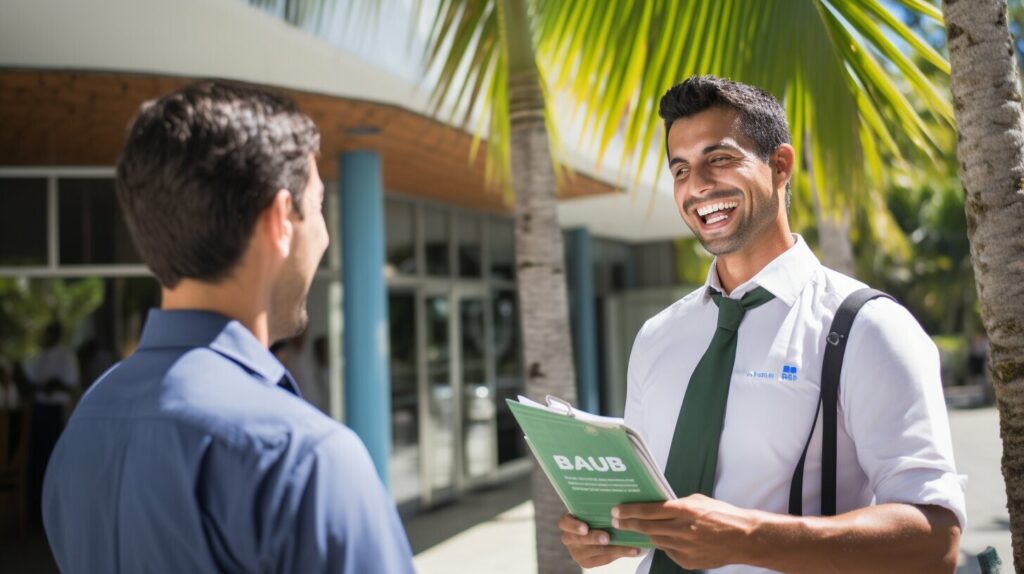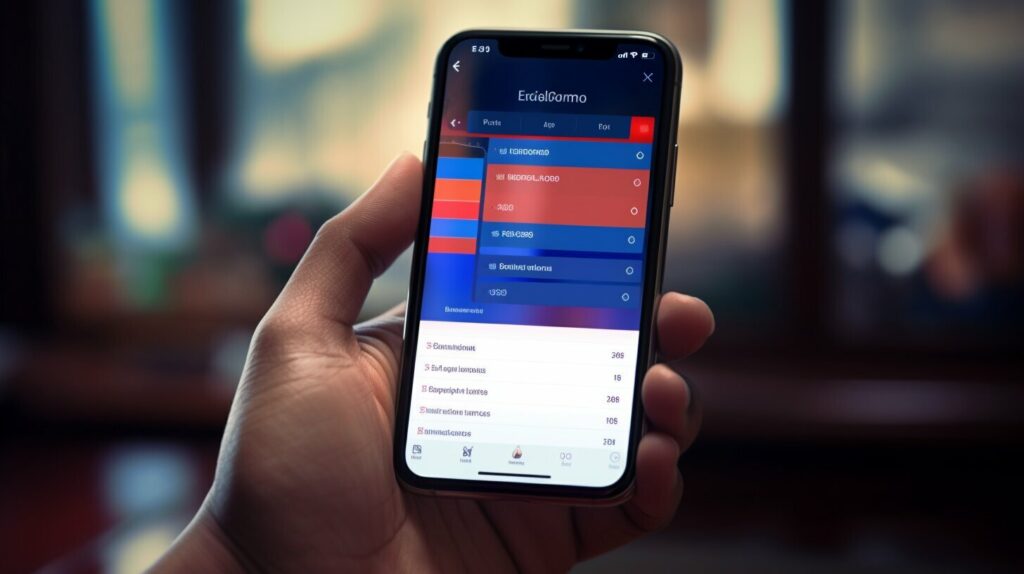At the forefront of property financing in Costa Rica, GapInvestments.com stands as a beacon for…

Guide to Opening a Bank Account in Costa Rica
Opening a bank account in Costa Rica is a straightforward process that requires meeting certain restrictions and conditions. Whether you are a resident or a non-resident, there are options available to suit your banking needs. In this section, we will provide a step-by-step guide on how to open a bank account in Costa Rica, including the requirements, necessary documents, and the best banks to consider for banking services.
Key Takeaways:
- Opening a bank account in Costa Rica requires meeting specific restrictions and conditions.
- Most banks allow foreigners with legal residency status to open accounts, while some offer options for non-resident foreigners.
- The documents needed to open a bank account vary depending on residency and bank requirements, but typically include identification, a minimum deposit, proof of address, and proof of income.
- State-owned banks offer better protection, while private banks provide faster service and may have English-speaking staff.
- Fees are involved in opening an account, and online banking options vary by bank.
- It is important to report income to both Costa Rican authorities and the IRS.
- Patience and adherence to all necessary regulations are essential for a smooth bank account opening process in Costa Rica.
Bank Account Requirements and Best Banks in Costa Rica
When opening a bank account in Costa Rica, it is important to be familiar with the specific requirements and regulations, as well as the best banks to consider for your banking needs. The process of opening a bank account in Costa Rica requires patience and adherence to all necessary regulations.
Most banks in Costa Rica allow foreigners with legal residency status to open accounts. However, some banks, like Banco de Costa Rica, also extend this opportunity to non-resident foreigners with certain restrictions. The exact documents needed to open an account may vary depending on residency and specific bank requirements. However, it is commonly required to provide identification, a minimum deposit, proof of address, and proof of income.
State-owned banks in Costa Rica generally offer better protection for your funds, but they may have longer wait times due to their popularity. On the other hand, private banks often provide faster service and may have English-speaking staff available to assist you. It is advisable to compare the services and fees of different banks to find the one that best suits your needs.
Best Banks in Costa Rica
- Banco Nacional de Costa Rica
- Banco de Costa Rica
- BAC Credomatic
- Scotiabank Costa Rica
- Banco Popular y de Desarrollo Comunal
Furthermore, it is essential to be aware of online banking options offered by different banks. While online banking facilities are available, the features and functionalities may vary between banks. Some banks offer user-friendly interfaces, allowing you to conveniently manage your accounts from anywhere with an internet connection. Others may have more limited online banking services.
Finally, it is important to note that reporting income to both Costa Rican authorities and the IRS is a requirement for taxation purposes. Failure to comply with these reporting obligations may result in legal consequences. Therefore, it is crucial to ensure proper compliance with all financial regulations when opening a bank account in Costa Rica.
| Bank Name | Services Offered |
|---|---|
| Banco Nacional de Costa Rica | Wide range of banking services with online and mobile banking options |
| Banco de Costa Rica | Various account options, including non-resident accounts, with online banking and international wire transfers |
| BAC Credomatic | International banking services with online and mobile banking, credit cards, and investment options |
| Scotiabank Costa Rica | Personal and business banking services with online and mobile banking options, credit cards, and investment services |
| Banco Popular y de Desarrollo Comunal | Various account options, including non-resident accounts, with online and mobile banking facilities |

In today’s digital age, online banking has become a popular choice for individuals looking for convenience and ease of access to their accounts. Costa Rica offers various online banking options, allowing residents and non-residents alike to manage their finances remotely.
When opening a bank account in Costa Rica, it is important to consider the online banking services provided by each bank. State-owned banks, such as Banco Nacional and Banco de Costa Rica, offer secure online platforms that allow customers to view account balances, transfer funds, pay bills, and even apply for loans.
Private banks, such as Banco Promerica and Banco BAC San José, also offer online banking services with additional features like investment tracking and personalized financial management tools. These banks may have English-speaking staff available to assist expatriates with any questions or concerns.
It is worth noting that some banks may charge fees for certain online banking transactions, such as wire transfers or international payments. It is important to review the fee schedule provided by the bank and consider these costs when choosing a bank for online banking services.
| Bank | Online Banking Features | Fees |
|---|---|---|
| Banco Nacional | Account balance view, fund transfers, bill payments | No additional fees for basic services |
| Banco de Costa Rica | Account management, wire transfers, loan applications | Fee varies depending on the transaction |
| Banco Promerica | Investment tracking, financial planning tools | Fee varies depending on the transaction |
| Banco BAC San José | Mobile banking app, personalized financial management | Fee varies depending on the transaction |
It is important to note that when utilizing online banking services in Costa Rica, residents and non-residents are required to report their income to both Costa Rican authorities and the IRS for taxation purposes. Failure to comply with these reporting requirements may result in penalties or legal issues. Therefore, it is advisable to consult with a tax professional or financial advisor to ensure full compliance with the reporting regulations.

- Online banking is a popular choice for convenience and ease of access to bank accounts in Costa Rica.
- State-owned and private banks offer online banking services with different features and fees.
- Consider the fee schedule and services provided by each bank when choosing an online banking platform.
- Residents and non-residents are required to report their income to both Costa Rican authorities and the IRS.
- Consult with a tax professional or financial advisor to ensure compliance with reporting regulations.
Conclusion
Opening a bank account in Costa Rica can be an important step towards financial freedom in the country. By adhering to the specific requirements and utilizing the expertise of Costa Rica Immigration Experts, individuals can enjoy secure and convenient banking services in this tropical paradise.
When opening a bank account in Costa Rica, it is essential to meet certain restrictions and conditions. Most banks allow foreigners with legal residency status to open accounts, while others, like Banco de Costa Rica, allow non-resident foreigners to open accounts with restrictions.
The documents needed to open an account vary depending on residency and bank requirements, but usually include identification, a minimum deposit, proof of address, and proof of income. It’s important to note that state-owned banks offer better protection but may have longer wait times, while private banks provide faster service and may have English-speaking staff.
Fees are involved in opening an account, and online banking options vary by bank. It’s important to report income to both Costa Rican authorities and the IRS for taxation purposes. Overall, the process of opening a bank account in Costa Rica requires patience and following all necessary regulations.
FAQ
Q: Can non-residents open a bank account in Costa Rica?
A: Yes, non-resident foreigners can open bank accounts in Costa Rica with certain restrictions. Some banks, like Banco de Costa Rica, allow non-resident foreigners to open accounts, while others may require legal residency status.
Q: What documents are needed to open a bank account in Costa Rica?
A: The documents required to open a bank account in Costa Rica vary depending on residency and bank requirements. Generally, you will need identification, a minimum deposit, proof of address, and proof of income.
Q: Are there fees involved in opening a bank account in Costa Rica?
A: Yes, there are fees involved in opening a bank account in Costa Rica. The fees vary depending on the bank and the type of account you are opening. It’s important to inquire about the specific fees and compare them before choosing a bank.
Q: Which banks in Costa Rica offer better protection for account holders?
A: State-owned banks in Costa Rica, such as Banco Nacional and Banco de Costa Rica, are often considered to offer better protection for account holders. However, they may have longer wait times for services. Private banks, on the other hand, provide faster service but may have different levels of protection.
Q: Do banks in Costa Rica offer online banking options?
A: Yes, most banks in Costa Rica offer online banking options. However, the availability and features of online banking may vary by bank. It’s important to inquire about the specific online banking services provided by the bank you choose.
Q: Do I need to report my income to Costa Rican authorities and the IRS?
A: Yes, it is important to report your income to both Costa Rican authorities and the IRS. Compliance with tax regulations is crucial for legal and financial purposes. It is advisable to consult with a tax professional to ensure proper reporting.
Q: What is the overall process of opening a bank account in Costa Rica?
A: The process of opening a bank account in Costa Rica requires patience and adherence to all necessary regulations. It involves gathering the required documents, meeting the bank’s minimum deposit requirements, and completing the application process. It’s essential to research and compare different banks to find the best fit for your needs.


